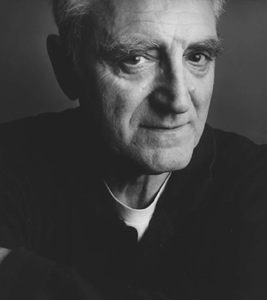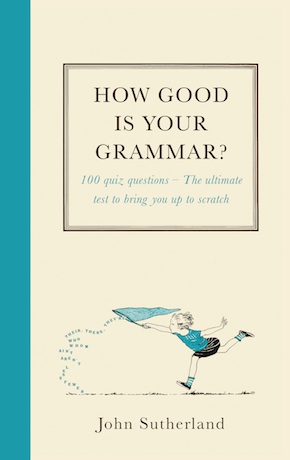Read my lips: Pol-talk
by John SutherlandWhen new-dealer Franklin D. Roosevelt told the American people, in a radio broadcast, “I’m not the smartest fellow in the world, but I can sure pick smart colleagues”, it wasn’t because Mr President couldn’t have come up with something more – let’s say – ‘presidential’. He wanted to be homely, to get down with the masses crowding round their wirelesses.
Churchill, wisely, kept strictly to the language of his ruling class when speechifying. It worked. The country, in WW2, wanted a leader, not a ‘mate’ who was ‘one of them’.
What in rhetoric is called ‘bathos’ – sinking, linguistically – has election-losing risks. It is a generally accepted historical fact that Neil Kinnock blew his chances when, at the eve-of-election rally at Sheffield in 1992, he let loose with the repeated bellow “We’re awright!! We’re awright!! We’re awright!!” Rant at your peril, wannabe PM.
Or wannabe president, as Howard Dean found out when he scuppered his chances of making it by prefacing his speech in West Des Moines, Iowa, during the 2004 Democrat presidential primary campaign, with a Tarzanic yell, rendered onomatopoeically as “BYAH!” and “YEARGH!”. It was amplified, ear-splittingly, by a defective sound system. Remorselessly ‘mashed’ and ‘YouTubed’, it became immortalised as the ‘I have a scream’ speech.
It was the cannier Ronald Reagan who, during one of the many Iran crises, universalised the slippery confession: “I mis-spoke” (i.e. lied my presidential head off). An actor by profession, the ‘Great Communicator’ misread the script and miscommunicated. No matter. The script doctors would sort it out.
Donald Rumsfeld, one of Bush II’s consiglieri gave us that sublime Rumsfeldism:
There are known knowns. These are things we know that we know. There are known unknowns. That is to say, there are things that we know we don’t know. But there are also unknown unknowns. There are things we don’t know we don’t know.
This does to epistemology what tyre-rubber does to hedgehogs. Nonetheless, “known unknown” has entered the political lexicon and there’s a truth lurking in the verbal maze. If he’d said, “known uncertainties” it would have passed without comment – and never have been immortalised.
Wittgenstein would have wrestled with Clinton’s word play. Hamlet could have built a soliloquy round it: ‘Is “is” is, or is “is” is not? – that is the question.'”
Tricky Dick Nixon was a past master of pol-speak, most characteristically when his volcanic paranoia erupted, as when he said (conversationally, off-mike, to a newscaster):
You know, it’s a funny thing, every one of the bastards that are out for legalising marijuana are Jewish. What the Christ is the matter with the Jews, Bob? What is the matter with them? I suppose it is because most of them are psychiatrists.
What the Christ indeed.
The veritable Houdini of White House pol-speak was the 42nd president who, when defending his sex / no sex with Monica Lewinsky before the Grand Jury in August 1998, in response to a query about his earlier statement “there is no improper relationship”, came up with:
It depends on what the meaning of the word ‘is’ is. If the – if he – if ‘is’ means ‘is and never has been’, that is not – that is one thing. If it means ‘there is none’, that was a completely true statement.
Wittgenstein would have wrestled with Clinton’s word play. Hamlet could have built a soliloquy round it: “Is ‘is’ is, or is ‘is’ is not? – that is the question.” But Bill got off. He always did.
Sometimes, the southerner slipped out, as when he said, unguardedly, in November 1994 (on BET, Black Entertainment TV, of all places), “African-Americans watch the same news at night that ordinary Americans do.” Generally, though, his control of utterance was master-class. And, at his best, Clinton was genuinely witty, as in an informal moment, he mused about the verbal disciplines high office imposed:
Sometimes I feel like the fire hydrant looking at a pack of dogs. For six years I had declined to tell those kinds of jokes, because I have been told it is not presidential. But I feel kind of outdoorsy today.
The neologism ‘outdoorsy’ is pitch perfect. And, for a certainty, no scriptwriter put it in his mouth.
Obama speaks, in public, like a professorial robot. One dozes, as, one feels, his back-row Harvard students must have done. At home one can assume his talk is more, to use Michelle’s term, ‘cheesy’. She was, for the record, referring to his socks.
Obama’s doughty opponent in 2008, Sarah Palin, for all her election gaffes, is the most honestly demotic politician of her time. Who but Palin would have tweetingly asked (as she did in August 2010):
Who hijacked term: ‘feminist’? A cackle of rads who want 2 crucify other women w/whom they disagree on a singular issue; it’s ironic (& passé).
“A cackle of rads” ought, surely, to go in the lexicon. And note the “whom” – I ain’t as ungrammatical as I look, buster (demotic for “you bastard”). And pardon my French, which you didn’t know I knew, did you, asshole?
Palin’s ritually repeated question to Obama in office is a magnificent kick in the you-know-where:
Hey, Mr President How’s that hopey, changey stuff working out for ya?
The grammarian in me (not, I confess, a dominant presence in the booth) would vote for Palin, in whose hands the English language is plasticine.
Oliver Sacks describes a speech given by President Ronald Reagan to Sacks’s ‘Aphasia Ward’, to patients who had lost all power of incoming, and outgoing, language. Sacks was alerted by “a roar of laughter”, and went in:
There he was, the old Charmer, the Actor, with his practised rhetoric, his histrionisms, his emotional appeal – and all the patients were convulsed with laughter… What could they be thinking? Were they failing to understand him? Or did they, perhaps, understand him too well?
The latter, we guess. If it were their friendly doctor, describing their condition, would they respond ‘intelligently’? Reagan, the ‘Great Communicator’, had sublinguistic powers of communication which – dislike Reaganism as we may – ‘worked’. The highest kind of praise for language, grammatical or ungrammatical.
Extracted from How Good Is Your Grammar?, published by Short Books in hardback, priced £12.99.
 John Sutherland is Lord Northcliffe Professor Emeritus at UCL, the author of numerous books, and a regular contributor to The Times, the Guardian and The New York Times. How Good Is Your Grammar?, published by Short Books, is a discursive celebration of grammar’s remarkable powers of adaptation. Dotted through the text are 100 quiz questions that illuminate the rights and wrongs and what-does-it-matters of written and spoken English. Read more.
John Sutherland is Lord Northcliffe Professor Emeritus at UCL, the author of numerous books, and a regular contributor to The Times, the Guardian and The New York Times. How Good Is Your Grammar?, published by Short Books, is a discursive celebration of grammar’s remarkable powers of adaptation. Dotted through the text are 100 quiz questions that illuminate the rights and wrongs and what-does-it-matters of written and spoken English. Read more.


